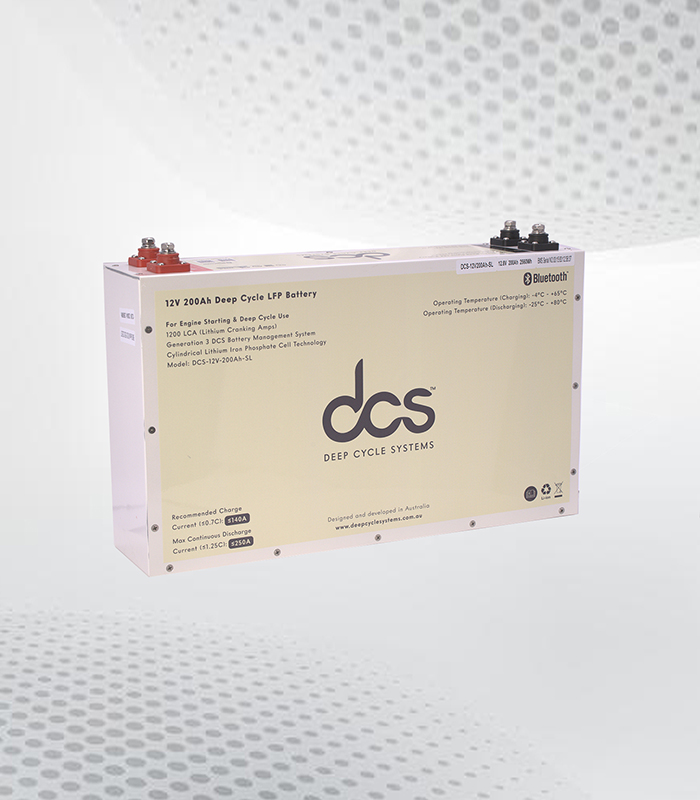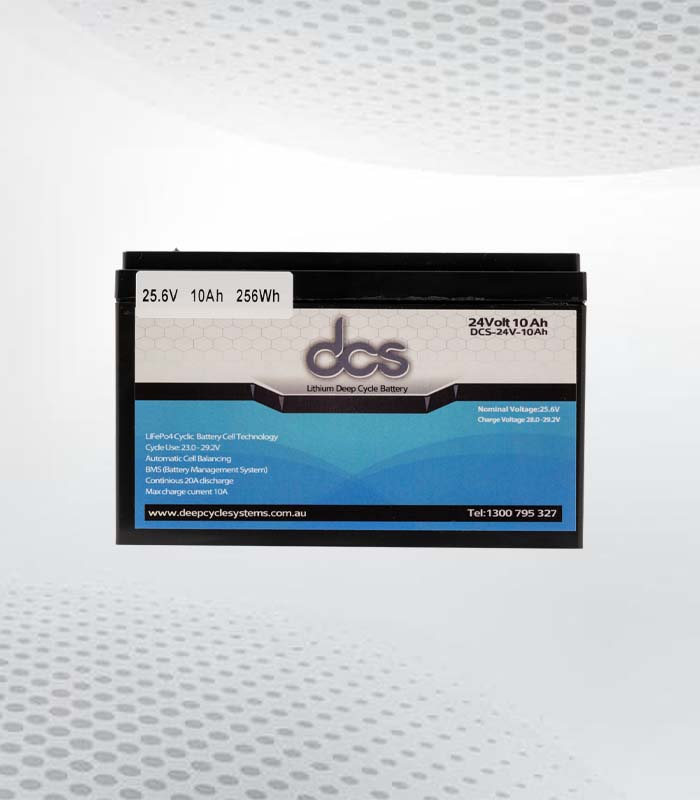Are you ready to supercharge your renewable energy system? As we navigate an era where sustainability meets innovation, choosing the right battery technology can make all the difference in harnessing solar power effectively. Enter lithium ion solar batteries—your key to unlocking unparalleled performance and efficiency! In this blog post, we’ll explore why these cutting-edge batteries quickly become the go-to choice for homeowners and businesses alike. From their impressive lifespan and rapid charging capabilities to unmatched reliability in various conditions, discover how lithium-ion technology can elevate your energy game while reducing your carbon footprint. Let’s dive into the bright future of sustainable energy storage!
Introduction to Lithium-Ion Solar Batteries
Solar power has emerged as a leading solution for harnessing renewable energy as the world shifts towards cleaner and more sustainable energy sources. But what fuels this transformative technology? Enter lithium-ion solar batteries—an innovation that’s changing the game in how we store and utilize solar energy. These batteries are not just about powering up your home; they represent a leap forward in efficiency, longevity, and environmental impact.
Imagine having a reliable energy source at your fingertips, ready to light up your life even when the sun isn’t shining. With advancements in battery technology, particularly lithium-ion options, this dream is becoming a reality for homeowners everywhere. More than just an alternative to traditional storage methods like lead-acid batteries, lithium-ion solutions offer unique benefits that cater specifically to modern renewable systems.
So why should you consider integrating lithium-ion solar batteries into your setup? Let’s explore their advantages and discover what makes them an ideal choice for anyone looking to invest in green energy solutions.
What Makes Lithium-Ion Batteries Ideal for Renewable Energy Systems?
Lithium-ion batteries stand out in renewable energy due to their impressive efficiency. These batteries can store more energy in a compact size, making them an excellent choice for solar energy systems.
Another key factor is their long cycle life. Lithium-ion batteries endure numerous charge and discharge cycles, often lasting over a decade without significant performance degradation. This longevity translates to lower replacement costs and less environmental impact.
Moreover, they boast faster charging times compared to traditional battery types. With rapid recharging capabilities, these batteries ensure that your solar system operates optimally during peak sunlight hours. Their lightweight design also facilitates installation and integration into various setups. This flexibility makes lithium-ion suitable for both residential and commercial applications.
Advantages of Using Lithium-Ion Solar Batteries
Lithium-ion solar batteries offer a range of benefits that make them stand out in the renewable energy landscape. Their compact size and lightweight design allow easier installation and integration into various systems.
One significant advantage is their high energy density. This means they can store more electricity than traditional batteries, providing longer usage without frequent recharging.
They also boast an impressive cycle life. With proper care, lithium-ion batteries can last over a decade, making them a cost-effective choice in the long run.
Moreover, these batteries charge more quickly than other types. A faster charging time translates to less downtime for your solar system. Lastly, lithium-ion technology requires minimal maintenance. Users enjoy peace of mind with reduced upkeep while benefiting from optimal performance throughout their lifespan.
Factors to Consider When Choosing Off Grid Solar Batteries
When it comes to choosing off grid solar batteries for your renewable energy system, several factors must be considered. These factors play a crucial role in determining the efficiency and longevity of your solar batteries, ultimately affecting the overall performance of your renewable energy system. This section will discuss five key factors to consider when selecting off-grid solar batteries.
Battery Capacity
The first factor to consider is the battery capacity, which refers to the energy the battery can store. This is an important consideration as it determines how long your solar system can run without sunlight or during periods of low sunlight. A higher battery capacity means more storage space and longer emergency backup power.
Battery Chemistry
The type of chemistry used in a battery greatly affects its performance and lifespan. Lithium-ion batteries are known for their high energy density and longer lifespan than traditional lead-acid batteries. They also have a lower self-discharge rate, meaning they can retain their charge for longer periods without being used.
Depth of Discharge (DoD)
DoD refers to the percentage of a battery’s total capacity that has been discharged. Different types of batteries have different recommended DoD levels, with lithium-ion batteries having a higher DoD than lead-acid batteries. Choosing a higher recommended DoD level battery means you can use more of its total capacity before recharging it.
Temperature Tolerance
Solar systems are often installed outdoors, where temperatures can vary greatly throughout the year. It is important to choose batteries with a wide temperature tolerance range so they can function optimally in both extreme hot and cold temperatures.
Cost
Lithium-ion batteries may have a higher upfront cost than traditional lead-acid batteries, but they offer significant cost savings over time due to their longer lifespan and lower maintenance requirements.
In addition to these five key factors, it is also important to consider the battery manufacturer’s brand and reputation, as well as any warranty or maintenance plans offered. Doing thorough research and consulting with a professional when choosing off-grid solar batteries for your renewable energy system is always recommended. By considering these factors carefully, you can ensure that you select the best batteries for your specific needs, maximizing the efficiency and sustainability of your renewable energy system.
Tips for Proper Maintenance and Care of Off Grid Batteries for Solar
Off grid batteries for solar are a crucial component of any renewable energy system, as they store the excess energy generated by your solar panels for use when there is no sunlight. To get the most out of your off-grid batteries, it is important to properly maintain and care for them. Here are some tips to help you keep your off-grid batteries in top condition:
Keep Batteries Clean and Dry
It is important to regularly check and clean your off-grid batteries, especially if they are exposed to dust or dirt. Use a damp cloth or brush to wipe away debris from the battery casing. Also, ensure that the area around the battery is kept dry and free from moisture. Water or other liquids can damage the battery and reduce its lifespan.
Regularly Check Battery Connections
The connections between the battery terminals and cables should always be tight and secure. Loose connections can lead to voltage drops and affect the performance of your off-grid system.
Monitor Battery Temperature
Extreme temperatures can negatively impact battery life and performance. Ensure that your off-grid batteries are not exposed to direct sunlight or extreme heat for extended periods.
Avoid Overcharging or Discharging
Lithium-ion batteries used in solar systems do not require regular maintenance such as equalizing charge like lead-acid batteries do, but it is still important to avoid overcharging or discharging them excessively. This can cause permanent damage to the cells and significantly decrease their lifespan.
Use Compatible Equipment
When choosing an off-grid battery for your solar system, ensure it is compatible with all other components, such as inverters, charge controllers, etc., regarding voltage ratings and charging methods. Using incompatible equipment can lead to premature failure of your batteries.
By following these tips for proper maintenance and care of off-grid batteries, you can ensure that your solar system runs efficiently and effectively for years. Regular maintenance not only prolongs the lifespan of your off-grid batteries but also helps save on costly replacements in the long run.
Common Misconceptions About Lithium-Ion Solar Batteries
Many people still harbour misconceptions about lithium-ion solar batteries. One of the most common myths is that they are prone to catching fire. While it’s true that any battery can pose risks if mishandled, modern lithium-ion designs include safety mechanisms to prevent overheating and other hazards.
Another misconception revolves around their lifespan. Some folks believe these batteries need frequent replacements. With proper care, a quality lithium-ion battery can last over ten years or more, significantly outpacing alternatives like lead-acid batteries.
Some also think they can’t handle extreme temperatures. However, many advanced models are engineered to function efficiently in various conditions, making them versatile for various climates. Lastly, there’s a belief that they’re just too expensive upfront. When factoring in their longevity and efficiency gains over time, the investment often pays off considerably in energy savings and performance.
Comparison with Other Types of Solar Batteries (Lead-Acid, Nickel-Cadmium, etc)
When selecting a battery for solar systems, lithium-ion batteries often outperform traditional options like lead-acid and nickel-cadmium.
While cheaper upfront, lead-acid batteries have a shorter lifespan. They typically last 3 to 5 years, compared to the impressive 10-15 years of lithium-ion models. The depth of discharge also plays a role; lead-acid requires more careful management.
Nickel-cadmium batteries offer durability but come with environmental concerns due to their toxic materials. Additionally, they are heavier and less efficient than lithium-ion alternatives.
Lithium-ion technology shines with its lightweight design and higher energy density. Users can store more energy in less space while enjoying faster charging times.
These differences highlight why many people favour lithium-ion solutions for modern renewable energy systems. Each type has its place, but advancements in lithium technology continue to elevate its status within the industry.
The Future of Lithium-Ion Batteries in the Renewable Energy Industry
Lithium-ion batteries are poised to revolutionize the renewable energy landscape. As technology advances, we can expect improvements in their efficiency and capacity. This means more energy storage at lower costs. The demand for sustainable solutions is rising. Lithium-ion batteries are becoming a cornerstone of solar and wind energy systems. Their lightweight design and modularity make them ideal for various applications, from residential setups to large-scale installations.
Innovations in recycling processes will also enhance sustainability. Companies are exploring ways to recover valuable materials in these batteries, reducing waste and environmental impact.
As electric vehicles gain popularity, lithium-ion technology will continue to evolve. The synergies between EVs and home battery systems promise an exciting future filled with potential for smart grids. Research into alternative chemistries could lead to even better performance metrics while maintaining safety standards crucial for widespread adoption within the industry.
Conclusion
Lithium-ion technology stands out when considering the best battery for your solar system. Its efficiency and longevity are hard to match. If you value high energy density, lightweight design, and faster charging times, this could be your ideal choice. The versatility of lithium ion solar batteries makes them suitable for various renewable energy setups. However, it’s essential to assess your specific needs as well. Cost, capacity requirements, and installation space will influence your decision. These batteries can serve you well for years with proper maintenance and care.
FAQs
1. What are lithium ion solar batteries?
Lithium-ion solar batteries are rechargeable energy storage devices that use lithium-ion technology to store electricity generated from solar panels. They are commonly used in renewable energy systems to store excess energy for later use.
2. How do lithium-ion solar batteries work?
These batteries store electrical charges as ions in a liquid electrolyte solution. When connected to a solar panel, they absorb and store the electricity produced during the day, which can be used when no sunlight is available.
3. What makes them different from traditional lead-acid batteries?
Lithium-ion solar batteries have several advantages over traditional lead-acid batteries. They have a higher energy density, meaning they can store more energy in a smaller space. They also have longer lifespans and require less maintenance.
4. Are they safe to use?
Lithium-ion solar batteries are generally considered safe for home use and pose minimal risk if handled properly. However, purchasing high-quality batteries from reputable manufacturers is important to ensure safety and reliability.
| Related Business Listings |
| Contact Directory |
| Local Business Profiles |




